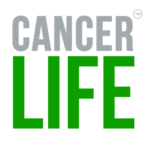The following is a transcription of this video.
Here’s a question? What is the current state of cancer care today? What is Cancerlife’s role in precision medicine ?
So cancer care today is going through a fundamental shift and revolution in care. Immunotherapies have changed the game. We call this precision medicine and it’s because in the past chemotherapy drugs, we’re targeting the kind of the entire system, right in a lung. You know, you took a drug in the lung cancer and you focus a drug in lung cancer, and then you took a separate drug and did kidney cancer. Well now, based on the precision medicine revolution, DNA sequencing, and it being to identify targeted markers, uh, drugs are now targeting specific genetic markers and the, you know, the, the tumor can mutate and those markers can be revealed. Um, and once doctors are always, that’s why you guys are going through so many tests is they’re always trying to see what markers are in that tumor that they can target with immune-drugs, Keytruda being the number one first to market revolutionary drug, probably number one drug in the world right now for their PD one marker, a target.
But the bottom line is doctors today treat tumors. They don’t treat patients. Now, let me say that again. Doctor treat tumors. They don’t treat patients and that’s okay. That is not, you know, no, some attack on oncologists, not at all, but it’s important for patients to understand that that’s where your doctor’s head is, right? There are focused on that tumor, the focused on those markers and the infinite amount of knowledge that is happening right now that is required by your physician. To be able to treat tumors in this way is exponential. They are truly overwhelmed. Unfortunately, their documentation requirements, um, that they have to do using their electronic medical record is painfully slow and burning out doctors left and right, they’re really, truly, um, overwhelmed when it comes to just the day to day grind of delivering cancer care. And that knowledge requirement is only going to go up.
I think I saw a statistic. That’s saying doctors only spend 12 minutes a month with each patient. Think about that 12 minutes. And I unfortunately think that that number is going to drop by 30% over the next few years. They’re just not going to have the time, but for a patient who’s going through treatment right now and maybe a CancerLife user. Um, you have to understand that you have to help your doctor help you. They’re not mind readers. They don’t know what’s going on in your life. You’re waiting for them to ask to probe deeper, to, to really understand what your values are. And the bottom line is your values change over time, right? I mean, you started when you got diagnosed, your value, every cancer patient has the same value on day one, which is cure me, get me back to my life that I was living.
I was really happy. Um, but you know, you take cancer care over 18 months and you know, the side effects, the symptoms weigh you down, you’re in pain, your fatigue or nauseous, all these things, 18 months later, you’re, you’re just exhausted.
And that’s where CancerLife comes in, which is collecting quality of life, data, sharing your reports with your doctor, you know, and being, being able to communicate your value of what quality of life means to be able to track. Are you able to get through your routine your every day and if you’re not use the CancerLife platform to collect this data, and then, you know, as we show you inside the platform, we were going to be showing you what other cancer patients are experiencing, not just from day to day symptom management perspective, but overall quality of life across specific, um, tumor types and, and treatments so that you can go to your doctor and say, Hey doc, you know, I’m looking at the camera, it’s life, community data.
And it’s telling me that on my same treatment, looking at 150 plus patients, they have 30% higher quality of life. I do like maybe is there another option for me? Can we slow down? Can we course correct? Can we lower the dosage? I mean, there’s a million things that, that your doctor can do, but it’s up to you to bring that data to the table. So to answer that, you know, what is this state of cancer care today and what is, you know, CancerLife, his role in the precision medicine revolution? I think it’s, it’s really finally bringing quality of life to the table so that each patient can be, you know, looked at individually and be able to share that data. So your doctor truly knows what your values are and when you reach that breaking point and really want to, you know, take a step back and just enjoy every moment, um, in your life with family and friends, being able to say to the doctor, Hey, you know, look at this quality of life data, and let’s adjust my treatment plan. That’s what a CancerLife’s role is within the precision medicine revolution. Thanks a lot.
